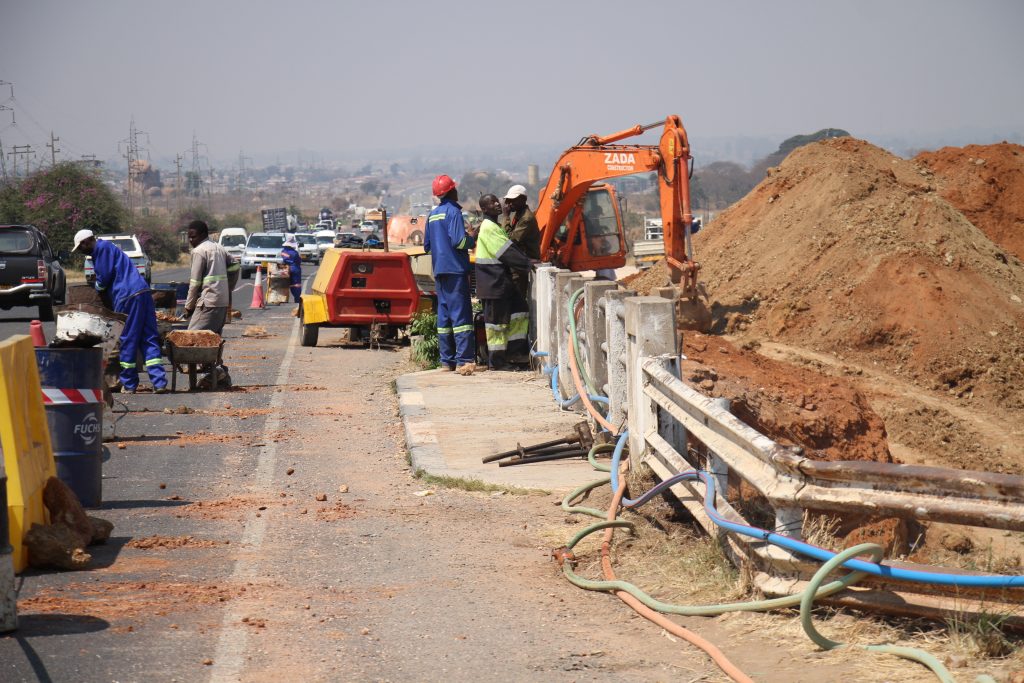
By Kunle Mar, 10, 2023 Featured
Africa is a continent full of potential and home to over 1.5 billion people. It is rich in natural resources and has a young, vibrant population. However, one of the significant challenges holding back Africa's economic development is inadequate infrastructure.
The lack of adequate infrastructure, including roads, bridges, and power grids, has been a significant hindrance to economic development in many African countries.
In this article, we will explore the importance of infrastructure financing and investment and how it is the key to Africa's economic growth.
Infrastructure Development in Africa
The economic prosperity of Africa depends on infrastructure development. According to the African Development Bank, the continent loses 2–3% of its yearly GDP growth due to a lack of infrastructure.
The capacity of Africa to trade and do commerce is severely hampered by its lack of infrastructure. Inadequate infrastructure harms people's quality of life by restricting access to essential services like clean water, healthcare, good transportation, and education.
Infrastructure financing and investments are needed to address the infrastructure deficit in Africa. Governments and international organizations have recognized the importance of infrastructure development in Africa and have increased investments in this area.
For example, the African Development Bank has launched the Africa Infrastructure Investment Fund, a $1 billion fund aimed at supporting infrastructure development in Africa in 2020 and now at $3b in 2023
Private Sector Financing for Infrastructure Projects
The private sector is also playing an increasingly important role in infrastructure financing and investments in Africa. In recent years, there has been a rise in private-sector financing for infrastructure projects, including public-private partnerships (PPPs). PPPs involve collaboration between the public and private sectors to finance and deliver infrastructure projects.
PPPs have been successful in financing infrastructure projects in Africa, particularly in the energy and transport sectors. For example, in Kenya, the Nairobi-Nakuru Highway PPP project involved the construction of a new 175-kilometer highway between Nairobi and Nakuru.
The project was financed through a PPP between the Kenyan government and a consortium of private sector companies. It also features Nigeria, Ghana, South Africa, and other targeted African countries, accounting for up to 50% of the total infrastructural project funds.
However, PPPs are not without their challenges. One of the significant challenges is the complexity of negotiating PPP contracts, which can lead to delays and cost overruns.
PPPs also require strong governance frameworks to ensure that public resources are used efficiently and transparently.
International Support for Infrastructure Financing and Investments
International support is also essential for infrastructure financing and investments in Africa. International organizations, such as the World Bank and the International Monetary Fund, have played a vital role in financing infrastructure projects in Africa.
For example, the World Bank's International Development Association (IDA) has provided concessional financing for infrastructure projects in Africa, including road networks, energy projects, and water projects.
The G20 has also launched the Compact with Africa initiative, aimed at promoting private sector investment in Africa. The initiative involves collaboration between the G20 countries and African countries to promote infrastructure development and investment in Africa.
The initiative aims to create a conducive environment for private sector investment in Africa by addressing issues such as regulatory frameworks, investment promotion, and risk mitigation.
Infrastructure Financing and Investments in the Context of the African Continental Free Trade Area
The African Continental Free Trade Area (AfCFTA) agreement, which came into effect on January 1, 2021, is expected to continue driving demand for infrastructure development in Africa in 2023.
The AfCFTA aims to create a single market for goods and services, with the potential to increase intra-African trade by 52 percent by 2022, according to the African Union.
To realize the full potential of the AfCFTA, Africa needs to invest in infrastructure development to support cross-border trade and commerce.
Infrastructure projects, such as the construction of cross-border highways, railways, and ports, are critical to supporting cross-border trade in Africa, and lunch the continent into the future it deserves
Tags: infrastructure africa investinafrica africavdevelopment growth
Share On Facebook Twitter Linkedin Whatsapp Telegram
Categories
Latest Post
- Nigeria Taps Global Markets with $2.25B Eurobond Sale
- Boeing Shares Rise as CEO Confirms China Deliveries to Resume Next Month
- STOCK SPOTLIGHT: UNION HOMES REAL ESTATE INVESTMENT TRUST (UHREIT)
- Nvidia Q1 2025 Earnings Report Summary
- 📉 U.S. Market Summary – May 28, 2025
- CBN Launches New Financial Tools to Boost Nigeria’s Non-Interest Banking Sector! ✨
- Market Watch: Key Updates as Wall Street Awaits Nvidia and Salesforce Earnings
- U.S. Equity Markets Rally as EU Tariff Deadline Is Extended and Consumer Confidence Surges
- Things to Know Before the U.S. Stock Market Opens
- What to Expect in the Markets This Week (May 27–31)

Start investing with Acorns today! Get $5 when you use my invite link: Z24WWE
